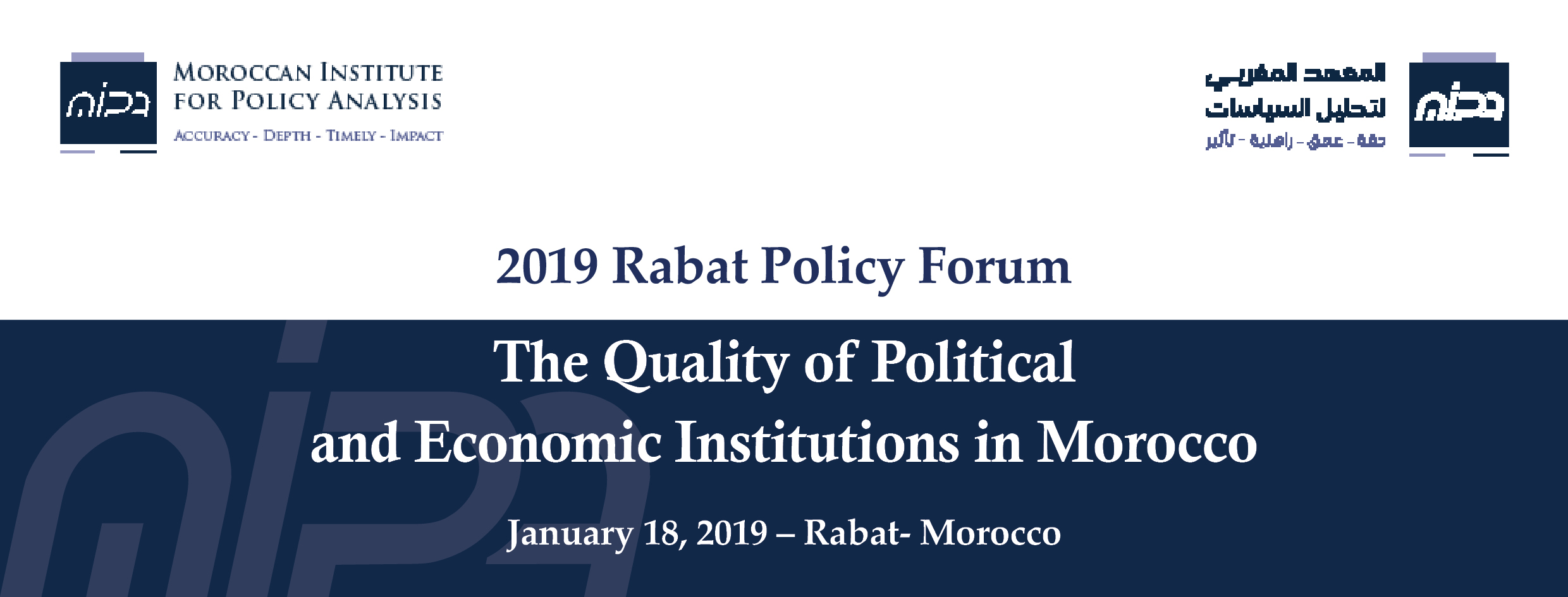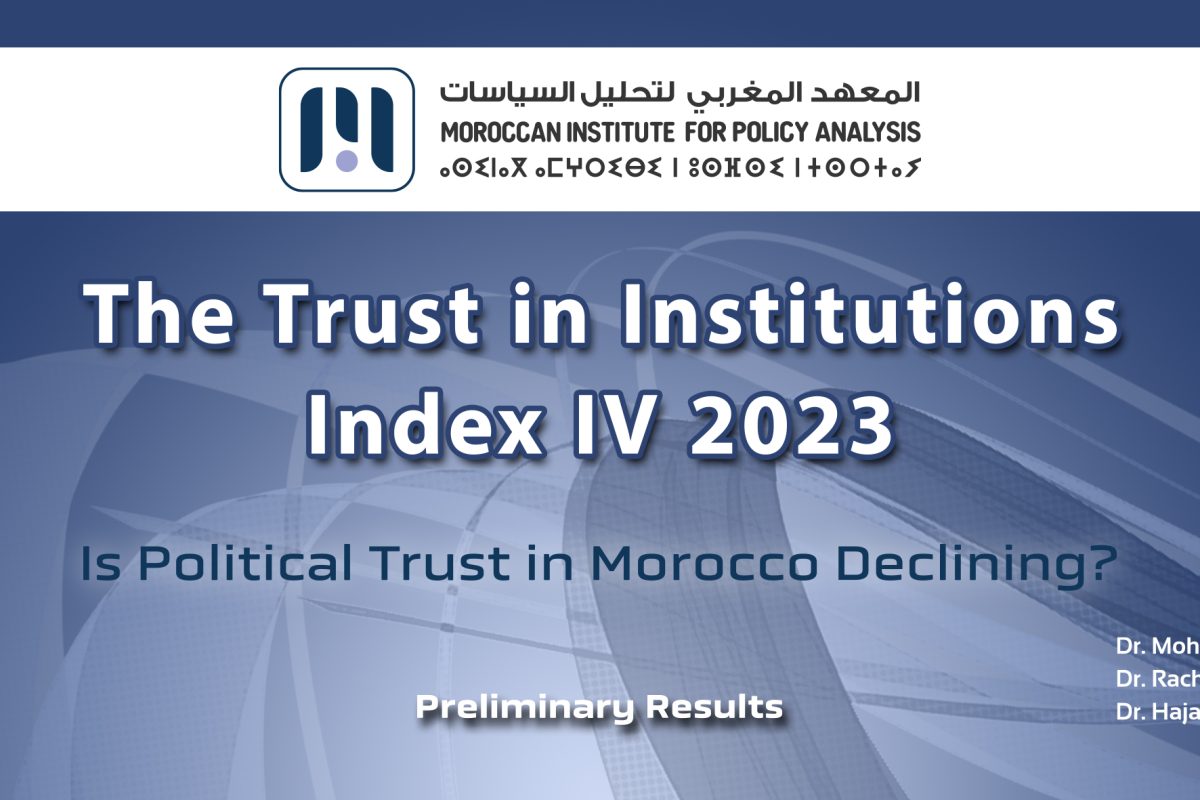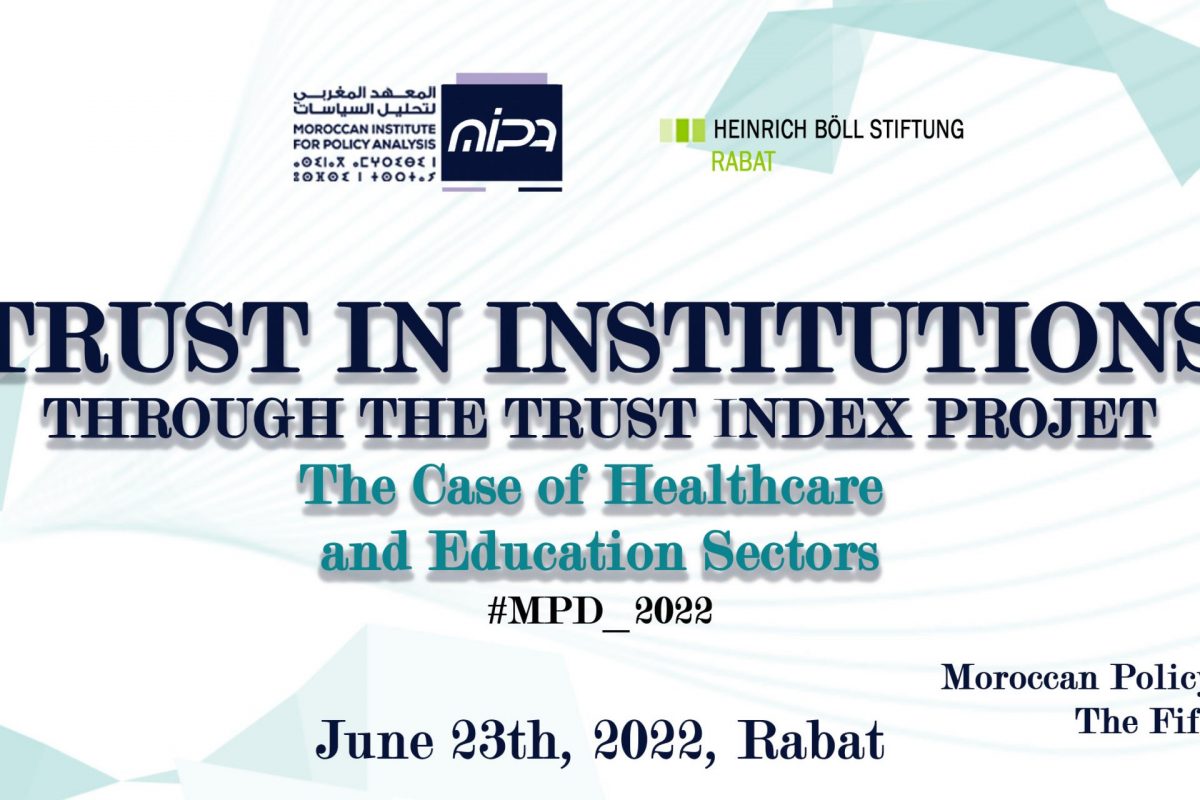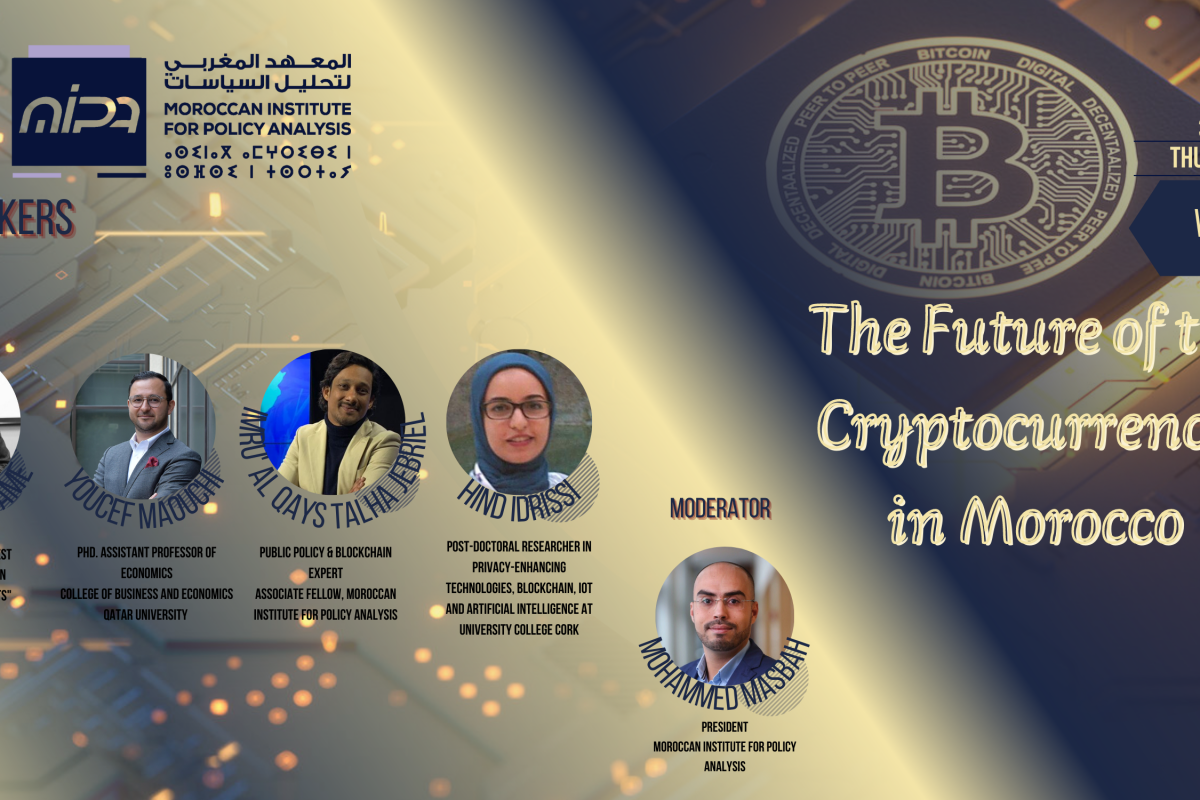[vc_row][vc_column][vc_column_text]
Concept Note
Download Concept Note
Why trust in institutions?
Institutions aim at limiting arbitrary behaviors of politicians in a way to protect individuals’ interests and basic liberties[1]. The goal is to build trust between individuals within the society. In fact, the emergence of the notion of institutions[2] as a principle goes back to the will in mitigating the risks that might face individuals, as well as the need to reduce the cost of interaction between these individuals within society. In a society with specific rules of conduct, individuals can act in less costly ways in search of greater returns. Throughout human history, these regulations have been translated into institutions adopted in today’s world by the majority of societies. These institutions include constitutions, laws, organic laws, conventions, customary regulations, beliefs, habits, and an individual’s daily behavior[3].
Although the philosophical debate around the significance of institutions in the development of nations goes back to the age of British empirical philosophers of the 19th century, the most significant contribution, however, grew in the 1970s with the emergence of a philosophical current named “the new institutional economics.” This philosophical trend was concerned by social and political institutions that underlie economic activity in order to build sustainable social peace and protect people’s interests. The institutionalists link between the conservation of institutional regulations and the robustness and efficiency of governments. This is achieved through their capacity to protect individual rights and freedoms as well as their capacity to protect the mechanisms which guarantee the implementation of the social contract. In fact, international comparative experiences have demonstrated that societies who were able to build and maintain institutional regulations, was more successful at realizing economic development and prosperity. Yet, societies governed by non-efficient and corrupt governments reaped, instead, social underdevelopment and the collapse of social peace.
Additionally, the institutional philosophers perceive that the development of societies does not only require the presence of robust economy, but also political institutions that have the capacity to limit the rulers’ authorities in violating the individual’s property rights[4]. For instance, research has shown that, the development of political institutions – such as the parliamentary regime and the process of democratization – is the main reason behind a state’s development and prosperity. For example, the emergence of the parliamentary monarchy in Britain and the federal regime in the US. during the last three centuries have played a vital role in economic growth of these countries by encouraging free enterprise, investment, protection of property rights and invention and creativity.
Trust in Institutions in the Moroccan Context
While the subjects of the robustness and quality of institutions and the role of trust in the process of democratization has been well researched in the western academia, these issues have not been thoroughly publicly debated in the Arab world and more specifically in Morocco, even if the issues are pressing and of current interest. With few exception, Moroccan scholars did not paid much attention to this subject, and in many cases researchers lack the courage of researching it. For instance, a report entitled “the Global Wealth of Morocco between 1999 and 2013,” published by the Economic, Social and Environmental Council in November 2017, pointed out that the relations of Moroccans with their institutions are tense and lack confidence. The report also points out that the sovereign institutions enjoy the trust of the population, with the exception of the judicial institution, yet, “there is a big feeling of lack of trust which is on the rise, with its negative impacts on social solidarity, not yet measured enough.”[5] Another study about the “Social Link” in Morocco, conducted by the Royal Institute for Strategic Studies in 2012, has confirmed this trend citing that “the political and civil link is the weakest and the most precarious one in Morocco, mainly due to the lack of trust in institutions.”[6]
The findings of many international reports confirm the same outcome. Morocco, in most of international reports, is ranked as a country that has institutions with low and weak quality. According to the Polity IV Project, issued by the Center for Systemic Peace, Morocco is considered a country with political institutions unable to implement control over the executive institution rendering it precluded from credible institutional oversight[7]. Other reports and indicators of international organizations, like Freedom House and Transparency International, ranked Morocco low in terms of political and civil freedoms as well as freedom of the press. Furthermore, they highlight the existence of high levels of corruption and lack of good governance. In terms of economic institutions, Morocco suffers from the inflation of the size of the government, the increase of government expenditure[8], not being able to protect property rights[9] and an average economic opening indicator.[10] All of these signs show the extent of the weakness of Moroccan economic institutions and their incapacity to guarantee the conditions of economic development.
All in all, this situation characterized by the precocity of institutions has economic and political repercussions which might, on the medium to long term, impact stability and social peace. Precarious institutions weaken economic growth and per capita income and create social disparities. All of these fuels the state of lack of consent and frustration amongst citizens, especially the youth, leading to a rise in social strain. Additionally, this situation contributes in deteriorating investments incentives in human capital and free enterprise. These aspects are common features of the emerging economies which point out to the limits of public policies in providing social welfare.
Based on that analysis, MIPA Institute aims at contributing to the public debate around the topic of trust in institutions by organizing the first edition of its annual conference, “Rabat Policy Forum 2019.” This is based on a critical and analytical approach to the quality and robustness of institutions and its relationship with the theme of confidence in these institutions. The two dominant discourses lean towards either glorifying existing institutions while ignoring their shortcomings and deficiencies, or doubting in them all together and thus calling for its undermining and deletion. Both discourses do not offer realistic analysis nor rational alternatives that could contribute in upgrading these institutions to be more efficient and robust.
By opening the debate between researchers and decision makers, the goal of the Rabat Policy Forum will be to overcome the prevailing (glorifying and nihilistic) discourses by providing profound explanations and critical analyses, hence approaching the subject from multiple perspectives. The forum will also propose alternative policies which will be handed to decision makers in order to design comprehensive policies.
Rabat Policy Forum
The forum is meant for research and political debate. It is held annually, gathering researchers as well as decision makers from different Moroccan and international institutions and universities. It aims to discuss issues related to public policy analysis and its evaluation.
The forum looks after tackling topics concerned by public policy issues in Morocco and overseas. The aim is to introduce a profound critical academic dialogue between the specialists in the domain of public policy analysis and decision makers to achieve a thorough diagnosis of public policies while constructively criticizing them, proposing policy alternatives and thinking of potential options. The works of the forum will be culminated in publishing research in Arabic and English which will be distributed to decision makers and experts in Morocco and other countries.
Moroccan Institute for Policy Analysis (MIPA Institute)
MIPA Institute is an independent think tank founded by a group of researchers from different specialties and scientific backgrounds. Part of its core objectives is to provide analyses to public policies in Morocco and other MENA countries. These analyses cover different political, economic, and social domains. Through its works, MIPA Institute seeks to give advice to the officials and governmental and non-governmental institutions as well as all kind of civil society bodies, meeting rigorous methodological standards adopting impartiality and accuracy.
The Main Themes of the Forum
- Theme 1: Trust in Moroccan Institutions: Diagnosing the Current Situation
This theme seeks to diagnose the quality and the robustness of political and economic institutions in Morocco through an accurate identification of the strengths and shortcomings. The theme also focuses on the level of trust that Moroccans have in their institutions and its impact on their daily behavior.
- Theme 2: How does Trust in Institutions Impact Development and Democracy? Global Experiences.
This theme looks at worldwide experiences in terms of the quality and robustness of institutions in relation with development and promoting democracy. It also looks at comparative experiences where lack of trust in institutions impacted stability and social peace.
- Theme 3: Building Trust in Institutions: Opportunities and Challenges
This theme looks at the future by exposing the challenges which hinder stalled institutional reform, and also the possible options and alternative policies to reinforce the efficiency of institutions and gaining back citizens’ trust.
Notes
[1] North. D. (1990). Institutions, Institutional Change and Economic Performance, Cambridge: Cambridge University Press.
[2] Ibidem.
[3] Ibidem.
[4] B. Weingast. (1993). « Constitutions as Governance Structures: The Political Foundations of Secure Markets”. Journal of Institutional and Theoretical Economics (JITE), 149(1): 286–311.
[5] The Economic, Social and Environmental Council. (2017). “the Global Wealth of Morocco between 1999 and 2013”, Rabat, p: 90.
[6] Institut Royal des Études Stratégiques. (2012). Rapport de L’enquête Nationale sur le Lien Social au Maroc, Rabat, p : 9.
[7] https://www.systemicpeace.org/polity/mor2.htm
[8] 5.68 point out of 10 points in 2015 according to the database of Penn World Table 9.0 (https://www.rug.nl/ggdc/productivity/pwt/)
[9] 7.9 points in 2016 according to Cato Institute. (http://perspective.usherbrooke.ca/bilan/servlet/BMTendanceStatPays?langue=fr&codePays=MAR&codeTheme=9&codeStat=GOUV.CATO2).
[10] 77.72% in 2016 according to World Development Indicators, provided by the World Bank. (https://data.worldbank.org/products/wdi).
Conference Information
Location:
- Rabat
Key Forum Dates:
- Deadline for receiving paper proposals for participation: September 30, 2018
- Reply to accepted papers: October 15, 2018
- Deadline for sending the final papers: December 10, 2018
- Final answer for the accepted paper: December 17, 2018
- Date of the forum: January 18, 2019
Conditions for Participation:
- Participation is open for Moroccan and international researchers in Arabic and English.
- The proposed paper must be original and relevant to the theme of the conference.
- The research proposal or abstract must not exceed 500 words. The methodology must be clarified as well as the research context, the problem and the hypotheses. The final paper must include a list of references.
- The final paper must not exceed 3500 words excluding references and annexes.
- The author must send his detailed CV and any links to his/her previous participations or any published articles.
The Language of the Forum
- Arabic and English, with simultaneous interpreting. The institute will also translate all the papers into Arabic and English.
Institutional Partners:
- European Endowment for Democracy (EED)
- For more information please contact: contact@mipa.institute
[/vc_column_text][/vc_column][/vc_row]
MIPA Institute
MIPA is a non-profit independent research institution based in Rabat, Morocco. Founded by a group of transdisciplinary researchers, MIPA’s mission is to produce systematic and in-depth analysis of relevant policy issues that lead to new and innovative ideas for solving some of the most pressing issues relating to democracy.



